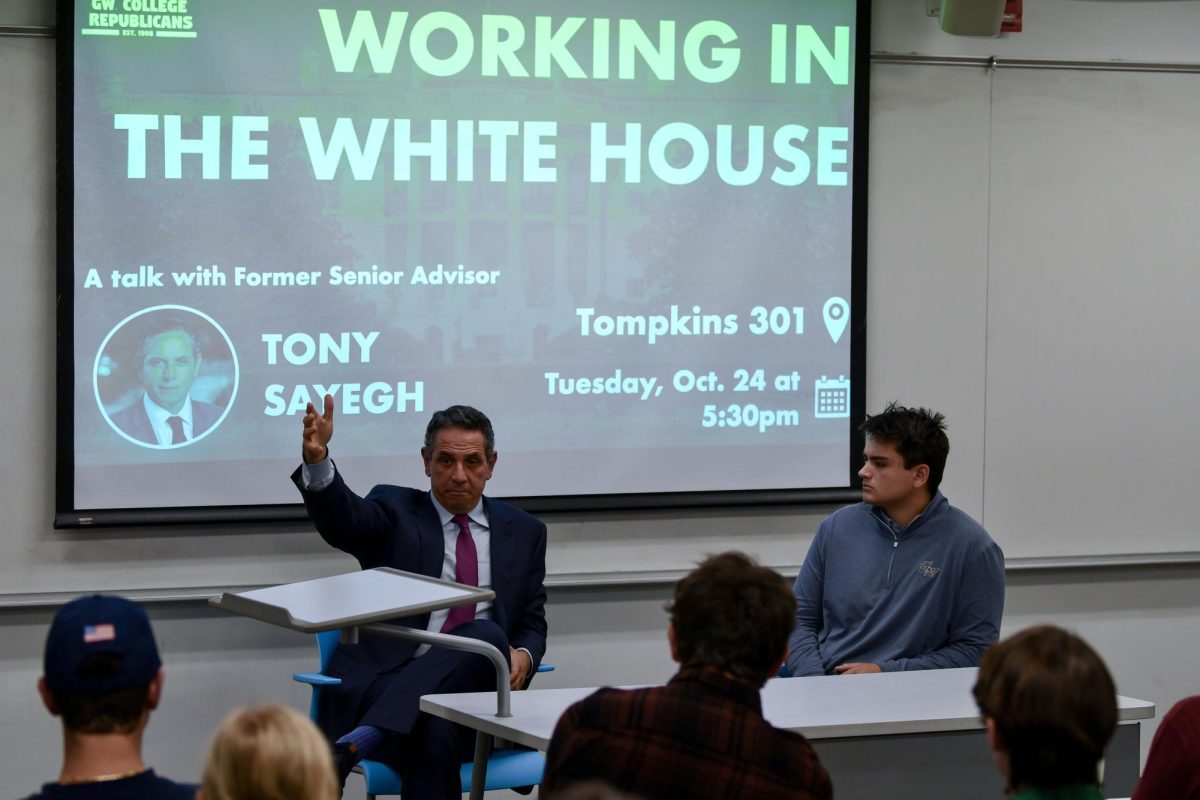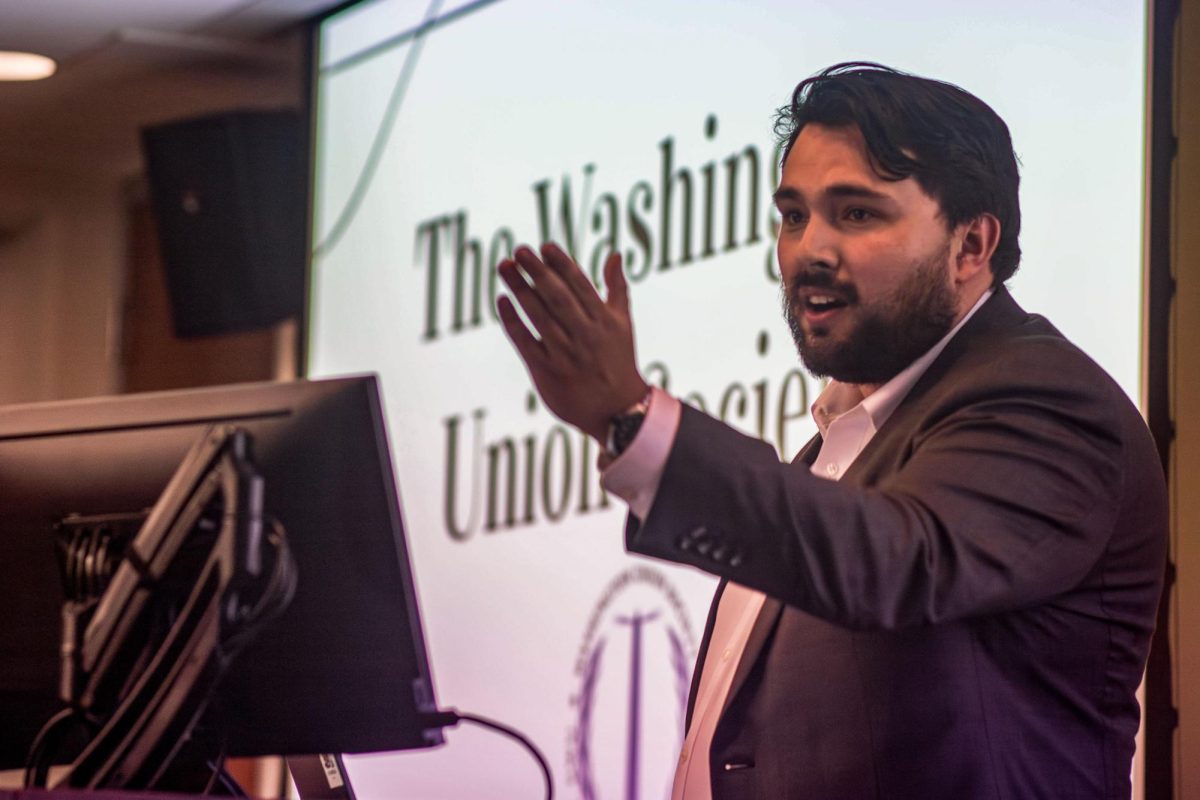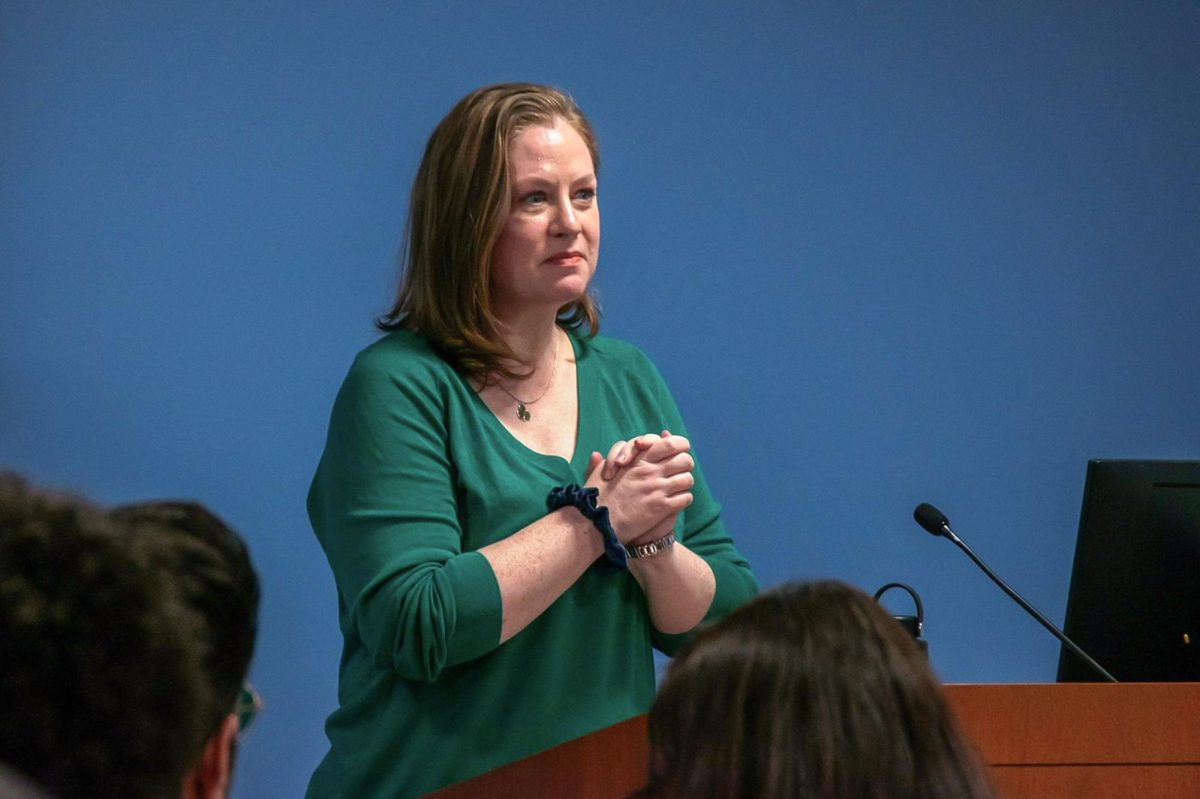A President Donald Trump administration adviser and GW alum discussed his career and the current state of the Republican Party at Tompkins Hall on Tuesday.
Tony Sayegh, a former White House senior adviser for strategy and former assistant secretary of public affairs at the United States Treasury Department, said students should offer their perspectives to the Republican Party through their involvement with organizations like GW College Republicans and by taking advantage of GW’s close proximity to national Republican organizations, like the Republican National Committee. GWCR hosted the discussion with Sayegh.
Sayegh graduated from GW in 1998 with a bachelor’s degree in political science after serving as Student Association executive vice president in the 1997-98 academic year. He also received his master’s degree in public administration from GW in 2000 and eventually became a member of the University’s Board of Trustees.
Sayegh said he relaunched GWCR during his sophomore year in 1995, gaining 350 members in its first two years, after it previously had been dissolved due to infighting among executive board members. Sayegh said he worked closely with the GW College Democrats throughout his time and earned their endorsement during his SA vice presidential run.
“My roommate and I decided we were going to just restart a group because how could you possibly have one of the most politically active campuses in the country in the heart of global democracy and freedom not have a vibrant Republican organization?” Sayegh said.
Sayegh said his time at GW helped him throughout his career by providing him with background on the American political system. He said his class with School of Media & Public Affairs professor Steven Roberts, his courses on the American presidency, classical western political theory and his internship on Capitol Hill were valuable experiences while attending GW.
“Whether it was a professor, whether it was an alumni, somebody 10 years ahead of me in my career, who kind of gave me a hand up, whether it was a person I graduated with, who gave me a job recommendation or an idea of kind of how to navigate my career at the time,” said Sayegh. “It’s something I feel very indebted to GW.”
Sayegh said seeing the enactment of Trump’s economic policies and the resulting increase in Americans’ wages was one of his most rewarding takeaways from his time in the Trump administration and the Treasury Department. He said Trump’s policies — like retraining workers through vocational education — did not abide by “traditional” Republican ideas but represented the “populist” ideas of the modern Republican Party.
“He was a New York businessman, very transactional,” Sayegh said. “Does it work? Does it not work? If it works, we’ll do it. If it doesn’t work, we’re off to the next. So it was really kind of cool being part of that.”
Sayegh said he was “deeply disappointed” that Republicans could not come to a consensus when selecting a Speaker of the House and that the situation made Republicans look like “fools.” He said Rep. Kevin McCarthy (R-CA) shouldn’t have vacated the seat without choosing a replacement.
“I’m personally a fan of his, I think he did a great job with the debt ceiling impasse, I think he had a very tough job with the narrowness of his majority,” Sayegh said. “But you don’t field the team without a successor.”
On Wednesday, members elected Speaker Mike Johnson (R-LA) after three weeks without a speaker. Earlier in the month, Rep. Matt Gaetz (R-FL) launched a successful motion to vacate against McCarthy, leaving the House paralyzed until it elected a new speaker.
Sayegh said young people need to be more active in the Republican Party so the party incorporates younger viewpoints and opinions. He said Republicans need to embrace new tactics in the 2024 elections like using social media and digital platforms, and that the party needs to “rebrand” their image to move away from being viewed as “anti-everything.”
“We’re anti-science, we’re anti-immigrant, we’re misogynist, we’re homophobic, we’re racist, go through every single pejorative you could associate to a human being,” Sayegh said. “That’s what even some of our own people associate with the Republican Party, and we’ve never really done, I think, a proper repositioning.”










